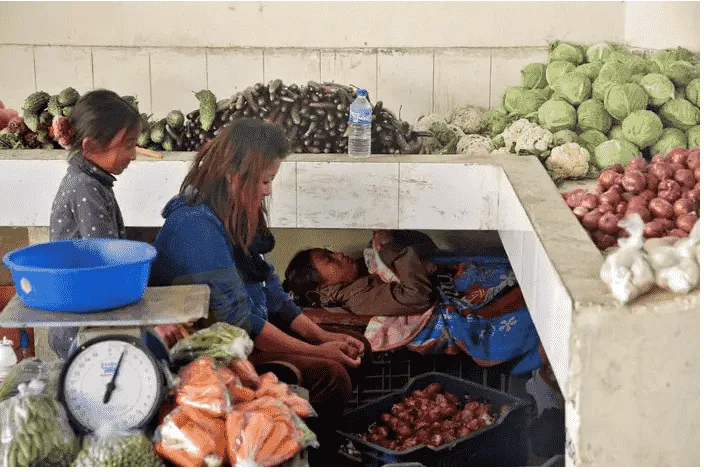简体中文
繁體中文
English
Pусский
日本語
ภาษาไทย
Tiếng Việt
Bahasa Indonesia
Español
हिन्दी
Filippiiniläinen
Français
Deutsch
Português
Türkçe
한국어
العربية
Bhutan considering steps to avoid fallout of falling forex reserves -minister
Abstract: Bhutan is considering several steps to contain adverse impacts on the economy following a fall in foreign exchange reserves, its economic affairs minister said on Thursday, after the government warned residents about possible curbs on imports.

Like many energy importing countries in South Asia, Bhutan, with a population of less than 800,000, is confronting the effects of soaring oil and grain prices due to the war in Ukraine, just as its economy is reeling from the impact of the pandemic, including a strict zero-COVID policy that has barred foreign tourists for the past two years.
“Steps are being looked into to avoid any serious fallout,” Loknath Sharma, the countrys economic affairs minister told Reuters, adding the government was closely watching the impact of dwindling foreign exchange reserves.
However, he declined, to say what steps could be taken.
Earlier this month, Bhutan increased cash bonuses paid to residents receiving remittances from overseas to 2% of each remittance from 1% previously, as part of its efforts to attract foreign currency.
Foreign exchange reserves declined to $970 million at the end of December from $1.46 billion in April 2021, data released by the Royal Monetary Authority of Bhutan earlier this month showed, while total external debt rose to $3.2 billion from $2.7 billion before the pandemic.
The government has designed a three-phase plan to deal with the emerging economic situation, the state radio Bhutans Broadcasting Service (BBS) reported on Wednesday, quoting Prime Minister Lotay Tshering.
In the first phase, the government will stop importing non-essential commodities such as snacks and biscuits. The second phase would include a ban on the import of more important goods and in the third phase, only the import of essential items will be allowed, BBS reported.
Bhutan, wedged between China and India, owes a debt of over $2.2 billion to India, its major trading partner, and about $1 billion to financial institutions including the World Bank and Asian Development Bank.
Bhutans imports rose to 90.23 billion ngultrums ($1.13 billion) in 2021 from 66.64 billion ngultrums in 2020 while exports rose at a slower pace, leaving a trade deficit of 32.23 billion ngultrums ($404 million).
Sharma said current forex reserves would cover imports for about 15 months, meeting a constitutional requirement to maintain reserves to cover at least 12 months of imports.
Local traders said rising fuel imports, amounting to nearly one-fifth of total imports, was a major worry, along with imports of passenger vehicles, while tourism earnings, crucial for the economy, have yet to pick up after two years of pandemic.
Bhutan said in June that it will reopen for international tourists from September.
($1 = 79.7570 ngultrums)

Disclaimer:
The views in this article only represent the author's personal views, and do not constitute investment advice on this platform. This platform does not guarantee the accuracy, completeness and timeliness of the information in the article, and will not be liable for any loss caused by the use of or reliance on the information in the article.
Read more

The Withdrawal Trap: How Scam Brokers Lure Victims into Paying More
In the world of online trading, the promise of quick profits and seamless transactions often masks a darker reality. One of the most insidious tactics employed by fraudulent brokers is blocking withdrawals, that is a deliberate strategy designed to trap traders and investors into paying more money under false pretences.

Common Tactics Used in Online Trading Fraud Today
Know the top online trading scams of 2025, from fake apps to pump-and-dump tricks. Simple tips to spot and avoid them, keeping your money safe in this easy guide.

RM1.29 Million Lost in ‘C Baird VIP’ WhatsApp Scam
A 43-year-old company auditor and subcontractor in Malaysia became the latest victim of an elaborate investment scam after losing RM1.29 million to a fraudulent scheme promoted via WhatsApp.

U.S. March ISM Manufacturing PMI Released
The U.S. March ISM Manufacturing PMI data shows that manufacturing has contracted for the first time, and investors should pay attention to future changes and impacts on the sector.
WikiFX Broker
Latest News
Exposing the Top 5 Scam Brokers of March 2025: A Closer Look by WikiFX
Gold Prices Climb Again – Have Investors Seized the Opportunity?
Webull Launches SMSF Investment Platform with Zero Fees
Australian Regulator Warns of Money Laundering and Fraud Risks in Crypto ATMs
FCA Warns Against 10 Unlicensed or Clone Firms
CySEC Warns Against 14 Unlicensed Investment Websites
Top Currency Pairs to Watch for Profit This Week - March 31, 2025
Will natural disasters have an impact on the forex market?
Philippines Deports 29 Indonesians Linked to Online Scam Syndicate in Manila
The Withdrawal Trap: How Scam Brokers Lure Victims into Paying More
Currency Calculator








